History
Love, Joy, Respect and Excellence.
A high-quality history education will help pupils gain a coherent knowledge and understanding of Britain’s past and that of the wider world. History helps pupils to understand the complexity of people’s lives, the process of change, the diversity of societies and relationships between different groups, as well as their own identity and the challenges of their time.
At Stanground St John’s we provide a knowledge rich curriculum with the aim to inspire our pupils’ curiosity, thus encouraging them to discover more about the past. During History sessions children learn how to ask perceptive questions, think critically, weigh evidence, sift arguments, and develop perspective and judgement.
National Curriculum Aims
The national curriculum for history aims to ensure that all pupils:
- Know and understand the history of these islands as a coherent, chronological narrative, from the earliest times to the present day: how people’s lives have shaped this nation and how Britain has influenced and been influenced by the wider world
- Know and understand significant aspects of the history of the wider world: the nature of ancient civilisations; the expansion and dissolution of empires; characteristic features of past non-European societies; achievements and follies of mankind
- Gain and deploy a historically grounded understanding of abstract terms such as ‘empire’, ‘civilisation’, ‘parliament’ and ‘peasantry’
- Understand historical concepts such as continuity and change, cause and consequence, similarity, difference and significance, and use them to make connections, draw contrasts, analyse trends, frame historically-valid questions and create their own structured accounts, including written narratives and analyses
- Understand the methods of historical enquiry, including how evidence is used rigorously to make historical claims, and discern how and why contrasting arguments and interpretations of the past have been constructed History – key stages 1 and 2
- Gain historical perspective by placing their growing knowledge into different contexts, understanding the connections between local, regional, national and international history; between cultural, economic, military, political, religious and social history; and between short- and long-term timescales.
By the end of Key Stage 1
Pupils will have begun to develop an awareness of the past using common words and phrases relating to the passing of time. They should have an awareness of how the people and events they study fit within a chronological framework and are able to identify similarities and differences between ways of life in different periods. They will have begun to have access to different types of historical source helping them to understand that our historical knowledge comes from many different places.
By the end of Key Stage 2
Pupils will continue to develop a chronologically secure knowledge and understanding of British, local and world history, establishing clear narratives within and across the periods they study. They should be able to construct valid questions to support historical enquiry and considering change, cause, similarity, difference and significance. They should be able to construct informed responses that involve thoughtful selection and organisation of relevant historical information and understand how our knowledge of the past is constructed from a range of sources.
